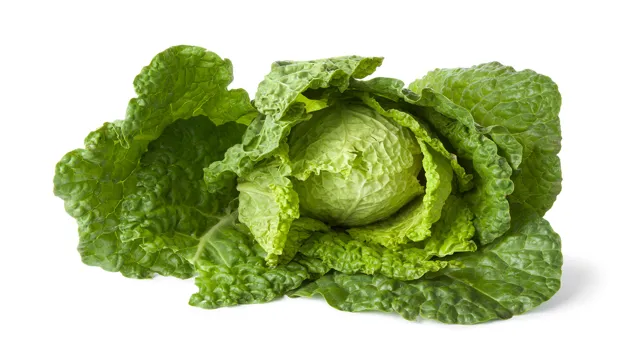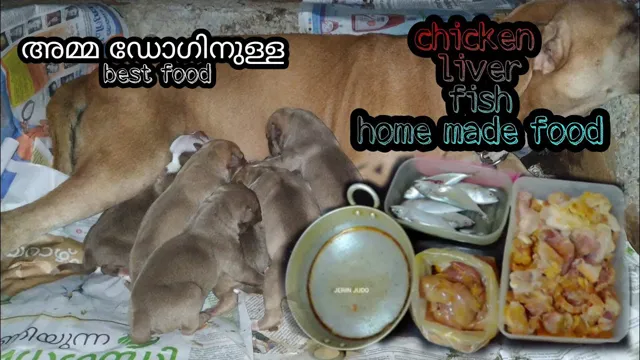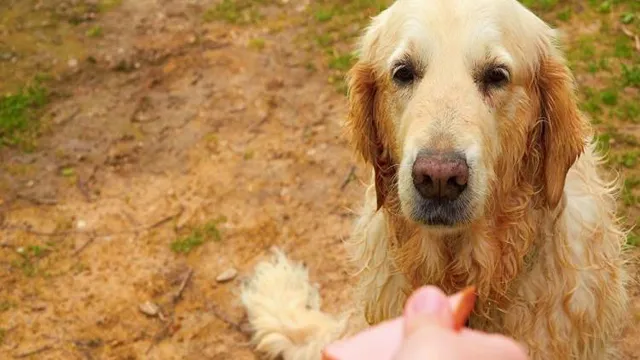Should Dogs Eat Cabbage? Benefits & Risks Explained

Dogs and cabbage – it’s a combination that has been confusing pet owners for years. Is it safe for your pup to eat cabbage? Can it provide any health benefits? Is there anything you should watch out for? In this blog, we’ll answer all these questions and more as we explore the potential of feeding your dog cabbage. So, can dogs eat cabbage? Let’s find out.
Benefits of Cabbage for Dogs
When it comes to keeping a pet, the health and wellbeing of that pet is always a top priority. Dogs are no exception – they need a balanced diet to stay healthy and live a long, happy life. Cabbage is a great addition to a canine diet, and it’s something you can easily incorporate into your pup’s meals. Cabbage is a vegetable that’s high in fiber, vitamins, and minerals. It also contains a variety of antioxidants, which can help protect cells from damage caused by free radicals.
The fiber in cabbage can help keep your dog’s digestive system regular, and the vitamins and minerals can support their overall health. Cabbage is also low in calories and fat, which makes it a great option for dogs who are overweight or trying to lose a few pounds. It’s also a great source of hydration, which is essential for keeping your pup hydrated in the heat of summer. When it comes to serving cabbage to your pup, there are a few things to keep in mind. First, make sure you’re only giving your pup cooked cabbage.
Raw cabbage can be difficult for them to digest, and it may cause stomach upset. You can cook cabbage in a variety of ways, such as steaming, boiling, or baking. It’s also important to keep your pup’s portions in check. Cabbage can be a healthy addition to their diet, but it should never replace their regular meals. Cabbage should only make up a small portion of their diet, and it should never exceed 10 percent of their daily caloric intake.
Overall, cabbage is a great vegetable to add to your pup’s diet. It’s high in fiber, vitamins, and minerals, and it’s a great way to keep them hydrated. Just make sure to serve it cooked, and keep portions in check. With a
Vitamins and Minerals
Cabbage is a nutritious superfood that packs a powerful punch when it comes to vitamins and minerals. Rich in fiber, Vitamin C, Vitamin K, and many other essential nutrients, it’s no wonder why cabbage is a popular vegetable. But can dogs eat cabbage? The answer is yes! Cabbage is a great source of nutrition for our canine friends and can be a great addition to their diet. Not only is cabbage packed with vitamins, minerals, and fiber, but it also contains compounds that can help protect your pup’s digestive system and aid in the absorption of other nutrients. So if you’re looking for a great way to give your pup the nutrition they need, consider adding some cabbage to their diet.

Antioxidants
Cabbage is one of those veggies that is a powerhouse of antioxidants and vitamins. But can dogs eat cabbage safely? Absolutely! Cabbage is an excellent source of vitamins and antioxidants that can provide your pup with a host of health benefits, from improved digestion to a shiny coat. Just make sure to chop it up into small pieces so that your pup can easily digest it and avoid any choking hazards. Plus, cabbage is low in calories and fat, so it’s a great snack for pups who are trying to manage their weight. So, yes, your pup can enjoy the benefits of this amazing vegetable when it’s served in moderation!
Fiber
Dogs are omnivores, meaning they eat both meat and plant-based foods, so the short answer to “can dogs eat cabbage?” is yes. Cabbage is a great source of fiber, antioxidants, and vitamins that can benefit your pup’s overall health. It contains sulforaphane, which is a compound that helps reduce inflammation and may even help reduce the risk of cancer in your pup. It’s also a great source of vitamins A, C, and K, which are essential for overall health, as well as calcium and potassium, which are important for strong bones and teeth. However, it’s best to feed your pup cabbage in moderation, as too much can cause digestive issues.
Risks of Eating Cabbage
Cabbage is a crunchy, nutritious vegetable that is enjoyed by people all over the world. While cabbage is generally a healthy food for humans, it may not be the best choice for dogs. Dogs can eat cabbage, but there are some risks that pet owners should be aware of before feeding it to their pup. Cabbage is high in fiber, which can help keep a dog’s digestive system functioning properly. However, too much fiber can lead to gastrointestinal upset, such as gas, flatulence, and diarrhea.
If your pup is prone to digestive issues, it’s best to avoid feeding cabbage.
Cabbage is also high in oxalates, which can be toxic to dogs if consumed in large quantities. Oxalates can cause kidney damage, so it is important to keep the amount of cabbage in your pup’s diet limited. Another risk of feeding cabbage to dogs is the potential for choking. Since cabbage is a hard vegetable, it can be difficult for dogs to chew.If a piece of cabbage is not chewed properly, it can become lodged in the dog’s throat and cause a choking hazard. It is best to cut cabbage into small pieces before feeding it to your pup. Overall, cabbage can be a healthy part of a dog’s diet, as long as it is served in moderation. Be sure to consult with your vet before adding cabbage to your pup’s diet, as they will be able to provide the best advice for your pet’s specific health needs.
Goitrogens
When it comes to our four-legged friends, there is one question that often comes up: can dogs eat cabbage? The short answer is yes, but with a few caveats. Cabbage is a type of food known as a goitrogen, which can interfere with the body’s ability to produce thyroid hormones, leading to problems such as an enlarged thyroid gland. Therefore, it is important to limit the amount of cabbage your dog consumes. Additionally, raw cabbage can cause digestive upset, so it is best to cook or steam the cabbage before feeding it to your pup.
Cabbage Gas
Cabbage has long been considered a superfood, but can our four-legged friends enjoy this nutritious veggie too? The answer is yes! Cabbage is a safe and healthy food for dogs, offering a range of health benefits. This leafy green is high in fiber and vitamins K and C, helping to improve digestion, boost the immune system, and provide essential antioxidants. Additionally, cabbage is low in calories, fat, and sodium, making it an ideal snack for overweight or active dogs. Just be sure to feed your pup cooked or steamed cabbage, as raw cabbage can be difficult to digest. So, if you want to give your pup a nutritious treat, why not add some cabbage to their diet? They’ll be sure to thank you for it!
Digestive Issues
Cabbage is a popular vegetable, but can our four-legged friends eat it? The answer is yes! Cabbage can be a healthy snack for dogs and can even help them with digestive issues. Cabbage is a great source of dietary fiber, which helps with digestion, as well as Vitamin K, Vitamin C, and Folate. However, be sure to feed your pup cabbage in moderation, as it can cause gas and other digestive issues if they eat too much. When feeding your pup cabbage, make sure to cook it first, as it is easier for your pup to digest. Additionally, make sure to remove the core and any tough stems.
Finally, don’t forget to remove any excess salt or seasoning!
Serving Tips for Dogs
Dogs are known for their love of food, and cabbage is no exception. Cabbage is a nutritious vegetable that can be a great addition to your pup’s diet. However, it’s important to know the proper way to serve it to ensure your pup gets all the health benefits without any potential risks. With these tips, you’ll be able to make sure your pup is getting the most out of their cabbage-filled meals. First, make sure to cook the cabbage before giving it to your pup.
While raw cabbage is safe for dogs to eat, cooking it helps to make it easier to digest and can be more palatable for them. Similarly, it’s best to chop the cabbage into small pieces to help your pup digest it more easily. Second, make sure to add the cabbage to your pup’s regular diet in moderation. Too much cabbage can cause an upset stomach, so start off with just a small amount and then gradually increase it over time. Finally, try to mix the cabbage with other healthy foods.
This helps to make sure your pup is getting all the vitamins and minerals they need while still enjoying the cabbage. For example, try mixing it with cooked lean meats, such as chicken or fish, and whole grains, such as brown rice. Cabbage is a great way to give your pup a nutritious boost and can be served in a variety of ways. Just make sure to follow the tips mentioned above to ensure your pup is getting the most out of their cabbage-filled meals. With a little bit of careful preparation and moderation, you can make sure your pup is getting the best possible nutrition from their cabbage-filled meal.
Conclusion
No, dogs cannot eat cabbage. Dogs have a shorter digestive system than humans, which means that they have a harder time breaking down the tough fibers found in cabbage. Not to mention, cabbage contains a compound called thiocyanate, which can be toxic to dogs in large amounts. So, the best way to keep your furry friend safe is to avoid feeding them cabbage altogether!”
FAQs
Can dogs eat cabbage?
Yes, dogs can eat cabbage in moderation as part of a balanced diet.



